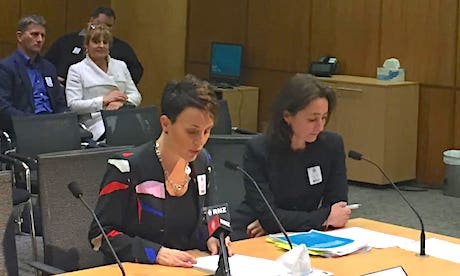“What is clear is that this Bill intends to go beyond terminal illness; what is unclear is exactly what conditions are in or out,” says the Disability Rights Commissioner.
“It is readily apparent that the scope is unclear and misunderstood,” said Paula Tesoriero.
Paula Tesoriero published a scathing assessment of David Seymour’s End of Life Choice Bill earlier this year and did not ease off during the first public submissions in a parliamentary select committee on Monday.
She said the Bill’s drafting could lead to serious unintended consequences that would fall disproportionately on disabled Kiwis.
Tesoriero said it ran the risk of unjustly including people with disabilities who don’t need to end their lives.
The Commissioner told the committee she was especially concerned by the potential inclusion of non-terminal conditions by reference to a “grievous or irremediable terminal condition.”
It was unclear whether illnesses like muscular dystrophy, multiple sclerosis or a declining medical condition were included or excluded from the legislation.
National MP Chris Bishop asked if Tesoriero believed assisted dying would always discriminate against disabled people or whether her objection was limited to this particular bill.
Tesoriero replied that in “certain circumstances” a framework might exist for terminal illness with adequate safeguards, but moving beyond the terminally ill was more fraught.
“We have not found a jurisdiction or a framework that would suggest the safeguards could be safe,” she said.
The bill’s sponsor ACT leader David Seymour said he was deeply disappointed that Ms Tesoriero was “spreading misinformation” as intellectually disabled people did not qualify under the bill.
“It’s very ironic that the Disabilities Commissioner of all people would be saying that a person who’s perfectly capable of making a decision … should have fewer rights and choices than other people.”
Source
Additional readingNews category: New Zealand.




